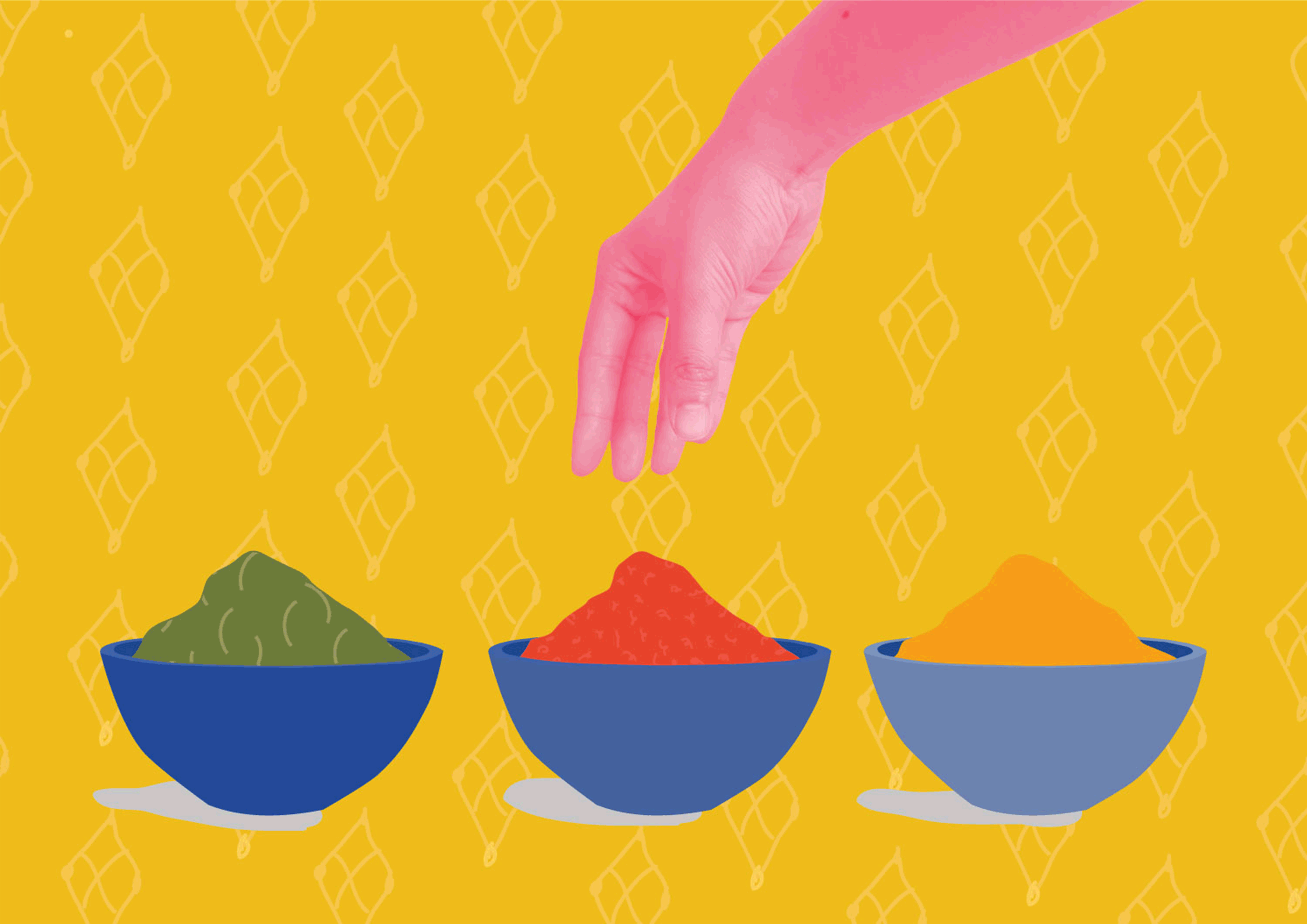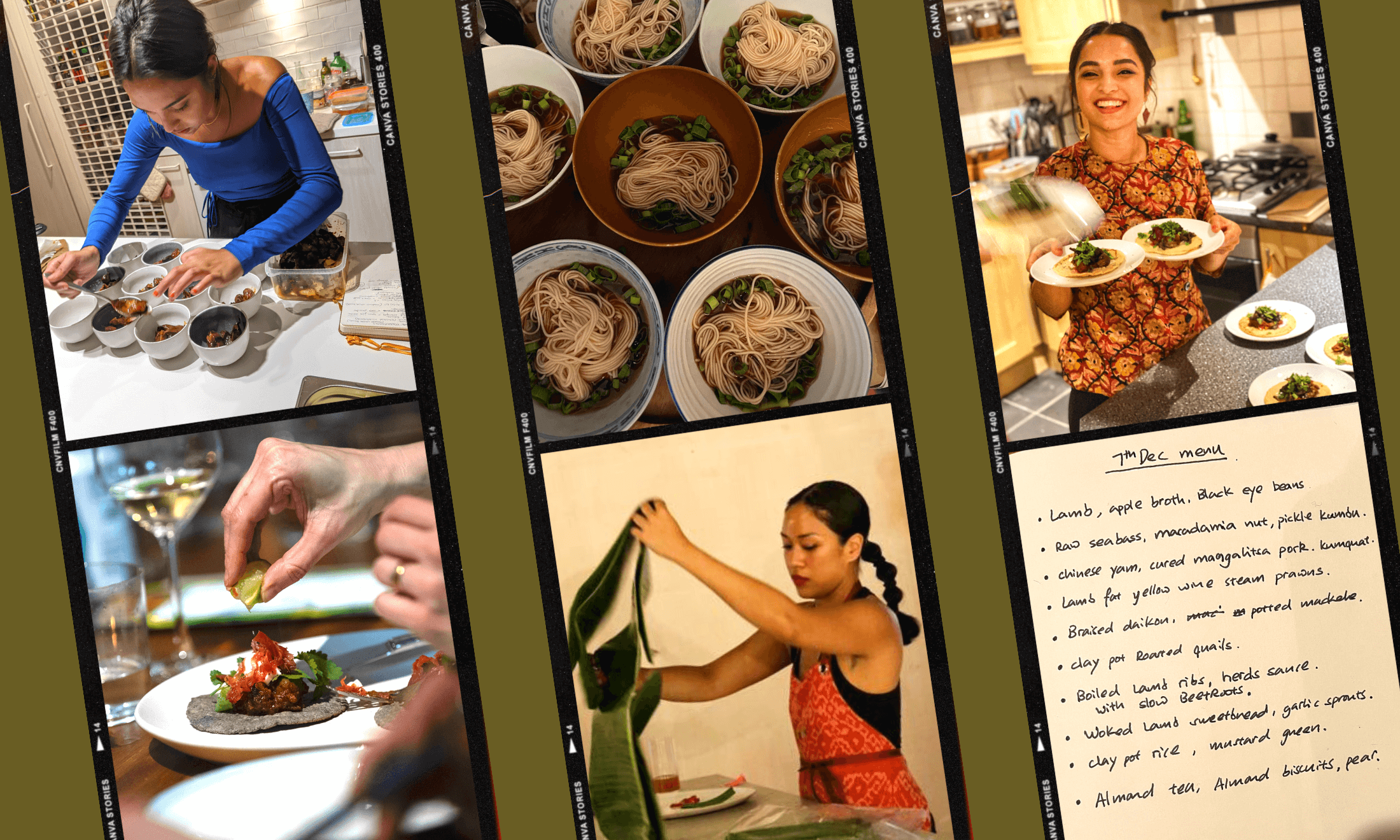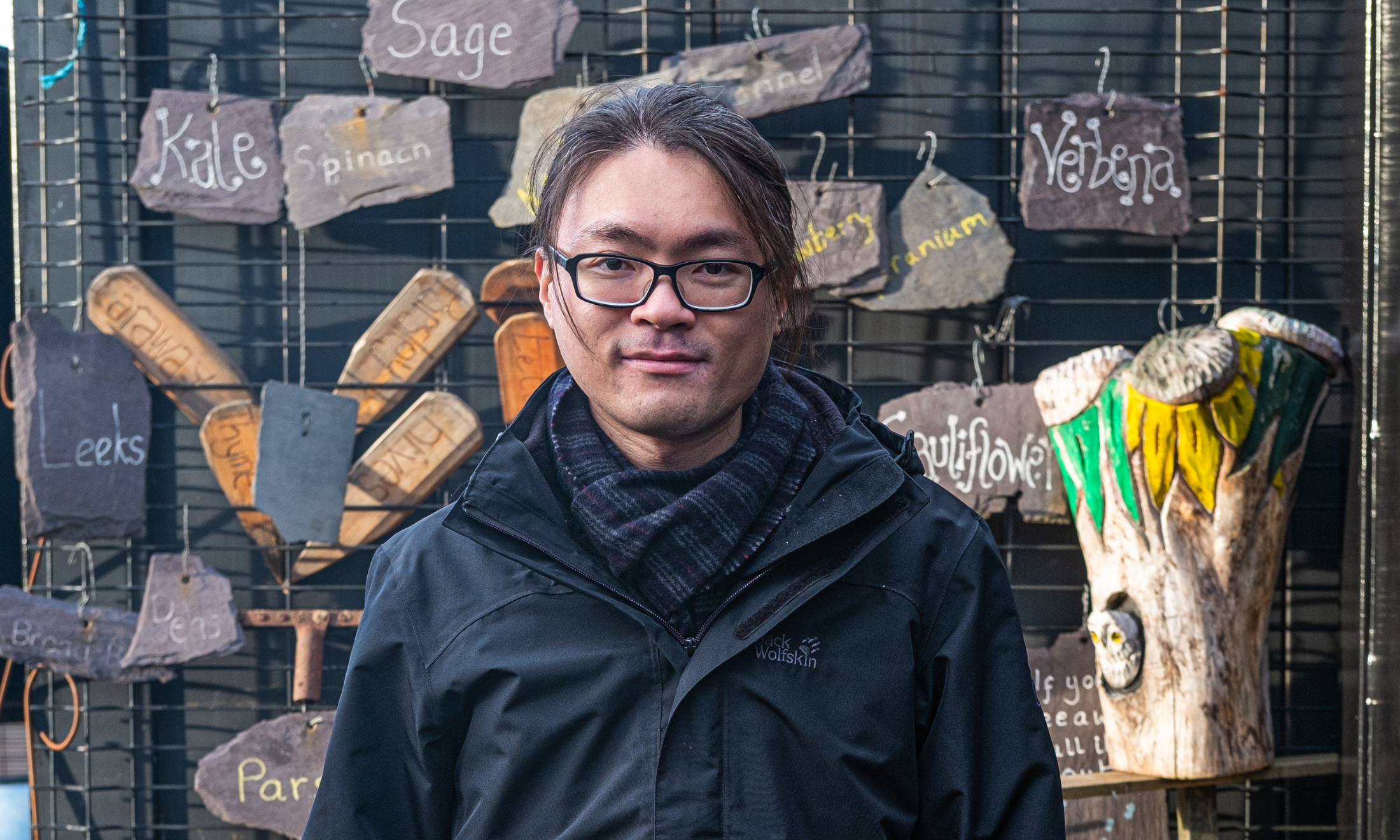
Psshhhh… The sizzling of chopped onion and garlic dancing in hot oil. The gentle grinding of pestle and mortar releasing the aromas of fresh ingredients. Little bubbles spluttering on simmering concoctions. Click, as the oven door opens. And my mum’s laughter as she turns away from the heat, grinning goofily with steamed up glasses…
These sounds, sights, and smells are everything to me. I’ve lived in many different houses with many different people, but “home” will always be mum’s kitchen.
Food, Roots & Memory was the title of a talk at Stoke Newington Literary Festival, with Pete Brown in conversation with Asma Khan and Nargisse Benkabbou.
I first met Khan in February at her restaurant, Darjeeling Express, and wrote about the experience on my work blog. I work for a brand development agency, but my posts usually revolve around food. Perhaps it’s a sign.
Before her own career change, Khan was restless. “When I slept at night and woke up in the morning, I imagined myself cooking. I did a PhD in law, had kids, lots of things happened… But the vision was always there.”
When she broke away from law, her family berated the decision. Her aunties were horrified she’d achieved so much academically and professionally, yet still wanted to “prepare food”, which they considered manual labour. Other girls in the family cooked by default; they weren’t permitted to go to college. Many felt she’d let herself down – apart from her mother.
Benkabbou’s mother was also encouraging. Her parents, food-oriented Moroccans, raised her in Belgium as part of a big Moroccan community. She’d always helped in the kitchen with tasks like chopping vegetables and cleaning shrimps, but says, “when I left my parents’ home I realised… I knew how to peel this or fry that, but didn’t know how to season”. Many phone conversations with her mother ensued. She now concentrates on Moroccan food “to stay connected to her roots”.
Khan’s journey, however, began during the process of laying down new roots in England.
“I cooked because I needed to breathe. I felt disconnected… I realised that was because nothing smelt like home. I needed the aromas and spice. Food is so important to me. It is the root, and I felt rootless.”
“I need people to understand where I’m coming from… You can’t just look at the colour of my skin and my accent and say, ‘OK she’s Indian, or she’s –’ no I’m not. Eat my food. Then ask who my family is. What I want to do with my life. I think it’s really important.”
Both Khan and Benkabbou want to share knowledge of the breadth of cuisines in their respective countries:
“How many kinds of curry do you have in India? It’s the same in Morocco. We have hundreds of different kinds of tagine, but people think it’s just this thing where you throw in spices and nuts.”
Khan empathised. “Where my mother comes from, there are no cows. We don’t use milk… I thought I’d die when I first ate Indian food at a restaurant in England – everything was swimming in cream!” She explains that locality is key in Indian cuisine. “There was a time that your dish reflected what you grew outside your house. It wasn’t just coriander and mint”.
There are culinary nuances within Khan’s own family. If all her aunties prepare the same dish, none tastes identical. But each aunty makes her own recipe exactly the same every time: “As unique as your fingerprint.”
The recipes in Khan’s cookbook (due for release later this year) are generations old. Everything has been passed down in practice; the women had no formal education so couldn’t read or write. This is the first time they’ll be documented.
Don’t expect twists on tradition: “I personally do not play around with my food – it tastes just like my great-grandmother’s.” She respects experimental cooks, but advises them to retain the soul – the spice, layering, and aroma.
Benkabbou is more adventurous, but agrees. “When you’ve been eating this food your whole life, you know how far you can go when you want to put your own spin on something.”
Both women adore London’s variety of people – and ingredients. If something’s missing from the Asian shops, Khan will go to the Middle Eastern shops. She gives advice on visiting Fruity Fresh:
“Stand there and look a bit confused. All the people will come… They’ll tell you recipes then and there.”
Khan believes that spices in London are currently superior to what you’d buy in India because of the prices Middle Eastern buyers will pay for quality. Many people travel to India believing they’ll have access to the finest cloves and cardamom in local markets, but according to Khan, they are misguided.
Benkabbou also shared an insight regarding authenticity, when asked if using earthenware tagines imparts flavour as well as being part of the ritual.
“In Morocco I have nine aunts… None of them use tagines anymore on a daily basis. People have hobs… To have a ‘real’ tagine and eat it in the vessel, you have to go to the countryside where people cook the meat for six hours on charcoal, in a tagine dish that’s not glazed so you can taste the earth. It’s something people don’t really do anymore… Life has changed.”
Although it might be fun to cook in the “right” shaped container, she disclosed “it’s going to taste exactly the same as if you cook it in a saucepan”. The unsatisfied audience member probed further for advice on authentic Moroccan cooking techniques, but Pete Brown, the host of the event, interjected: “just buy the book”.
Simplicity also trumps performativity in Khan’s cookbook. The ingredients are accessible and the old-fashioned techniques she teaches are straightforward. “What they require is for you to cook from your heart. The most important thing you bring to the dish is you.”
Nargisse Benkabbou’s debut cookbook Casablanca: My Moroccan Food is out now and available for purchase.
Asma Khan’s book will be coming out later this year. Until then, you try her food at Darjeeling Express in Kingly Court, Soho or at Calcutta Canteen in Fulham.









